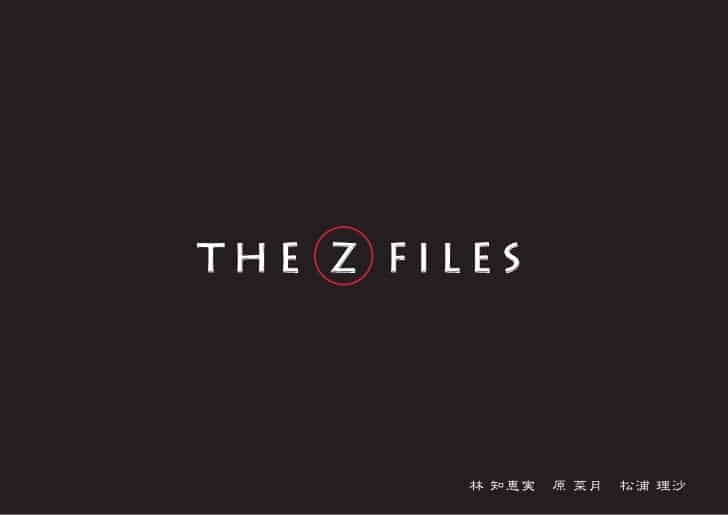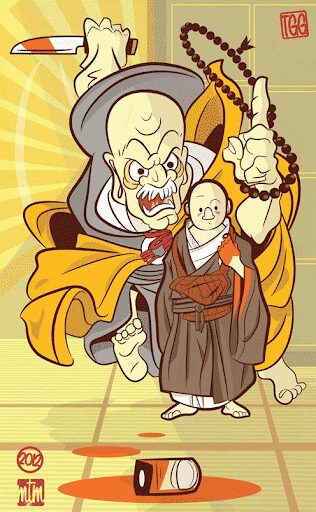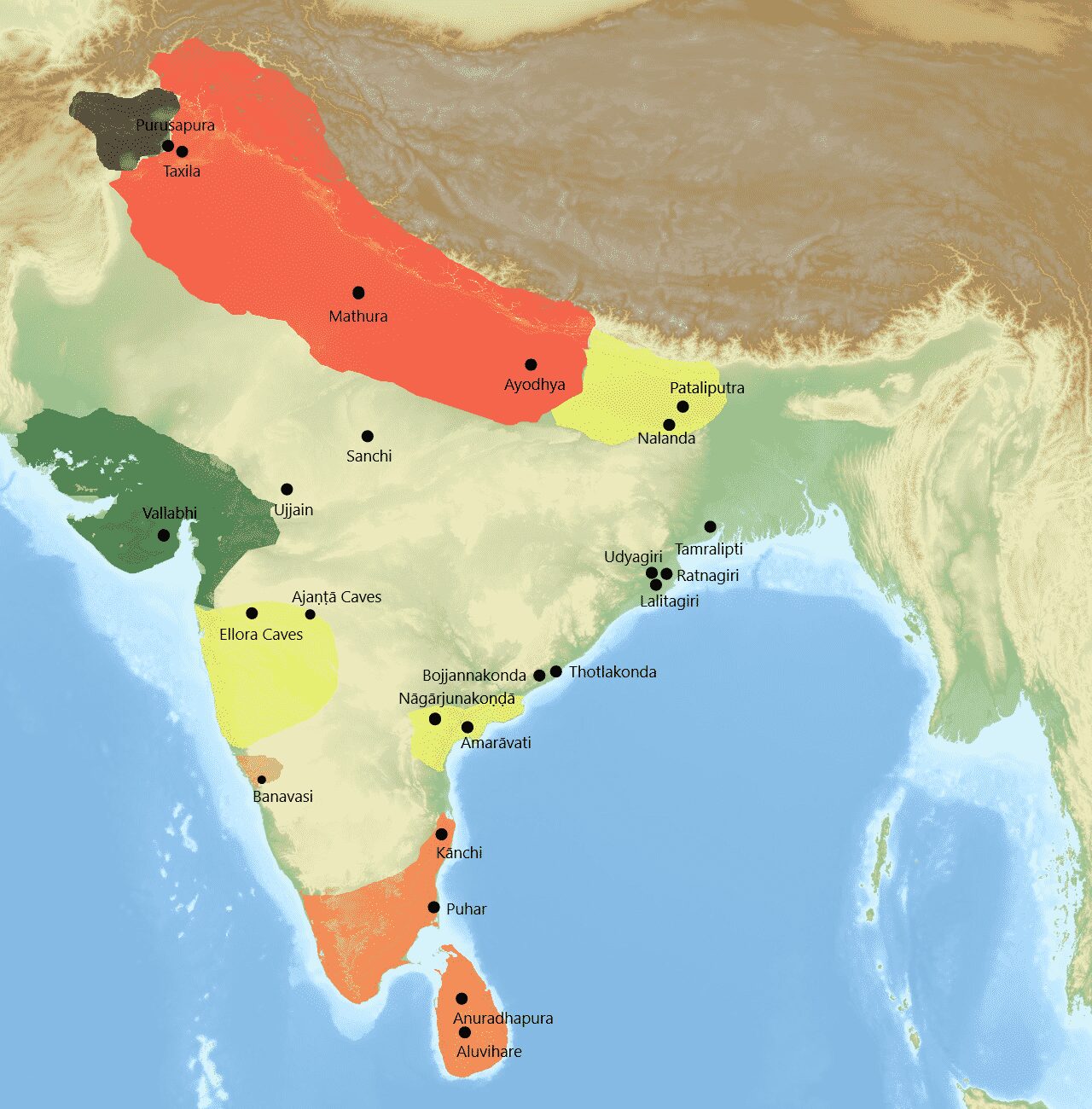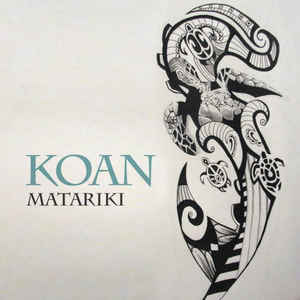A monk asked Joshu, “Has a dog the Buddha Nature?”
Joshu answered, “Mu.”
In order to master Zen, you must pass the barrier of the patriarchs. To attain this subtle realization, you must completely cut off the way of thinking.
If you do not pass the barrier, and do not cut off the way of thinking, then you will be like a ghost clinging to the bushes and weeds.
Now, I want to ask you, what is the barrier of the patriarchs?
Why, it is this single word “Mu.” That is the front gate to Zen.
Therefore it is called the “Mumonkan of Zen.
If you pass through it, you will not only see Joshu face to face, but you will also go hand in hand with the successive patriarchs, entangling your eyebrows with theirs, seeing with the same eyes, hearing with the same ears.
Isn’t that a delightful prospect? Wouldn’t you like to pass this barrier?
Arouse your entire body with its three hundred and sixty bones and joints and its eighty-four thousand pores of the skin; summon up a spirit of great doubt and concentrate on this word “Mu.”
Carry it continuously day and night. Do not form a nihilistic conception of vacancy, or a relative conception of “has” or “has not.”
It will be just as if you swallow a red-hot iron ball, which you cannot spit out even if you try.
All the illusory ideas and delusive thoughts accumulated up to the present will be exterminated, and when the time comes, internal and external will be spontaneously united. You will know this, but for yourself only, like a dumb man who has had a dream.
Then all of a sudden an explosive conversion will occur, and you will astonish the heavens and shake the earth.
It will be as if you snatch away the great sword of the valiant general Kan’u and hold it in your hand. When you meet the Buddha, you kill him; when you meet the patriarchs, you kill them. On the brink of life and death, you command perfect freedom; among the sixfold worlds and four modes of existence, you enjoy a merry and playful samadhi.
Now, I want to ask you again, “How will you carry it out?”
Employ every ounce of your energy to work on this “Mu.”
If you hold on without interruption, behold: a single spark, and the holy candle is lit!
Mumon’s Verse
The dog, the Buddha Nature,
The pronouncement, perfect and final.
Before you say it has or has not,
You are a dead man on the spot.”
***
Infos and comments
Mu means – no, not, nothing, without, nothingness, un-, is not, has not, not any, nonexistence; nonbeing; not having; a lack of. Also, can be: pure human awareness, a state which is prior to experience or knowledge. This meaning is used especially by the Chan school. It is the ‘original nonbeing’ from which being is produced. In modern Chinese and Japanese it is commonly used in combination words as a prefix to indicate the absence of something. In Classical Chinese, it is an impersonal existential verb, meaning “not have”.
Joshu (A.D. 778-897) was a famous Chinese Zen Master who lived in Joshu, the province from which he took his name.
This koan is one of several traditionally used by Rinzai school to initiate students into Zen study, and interpretations of it vary widely. This koan is possibly the most famous of all and is the one most often used by the Zen masters. It is said that all thousands and thousands of koans are just elaborations of this first one.
There are all manner of explanations of Mu, many written by people who have the idea that the koan is merely an argument about the presence of Buddha nature in sentient or insentient beings. In Rinzai Zen, solving this koan is considered to be the beginning of Zen practice. Mu changes the way the disciple perceives everything. Of course, Buddhism has many other means of pointing towards realization; this is just one particular way. But it’s a very effective way.
The practice of this koan is an attempt to obtain an intensive concentration, for this state will be helpful in clearing the mind and achieving what Buddhists call “stopping” or “cessation”. In the full experience of cessation, one’s personal idea of reality is suspended. This is done as an expedient, to free the mind from the limitations of fixed ideas and compulsive habits of thought, to touch the absolute reality, the ultimate truth, which Buddhists consider is beyond thought and ideation. According to traditional Buddhist teaching, in order to witness the absolute reality it is necessary to detach from our conceptual description of reality.
It is advisable not to think about Mu conceptually, for that would lead to fragmentation of the mind. It’s not a matter of intellectual understanding. To be able to see Mu we have to become Mu itself. When we do this, we realize that from the beginning we are nothing but Mu, the Buddha nature itself.
This experience is called shoken, the first barrier. Passing this first barrier is to experience the same realization that all the Buddhas and masters experienced themselves. Having passed this first barrier, the practice continues, and our wisdom deepens, enlarges and refines.
So, until the next case, have a nice Mu!
(The whole translation of the case can be found in Mumonkan sacred-texts).




